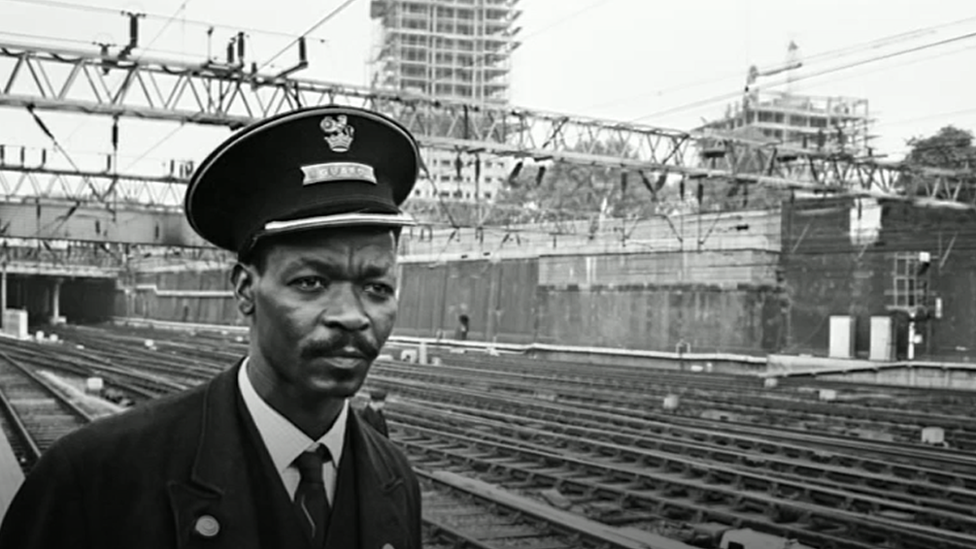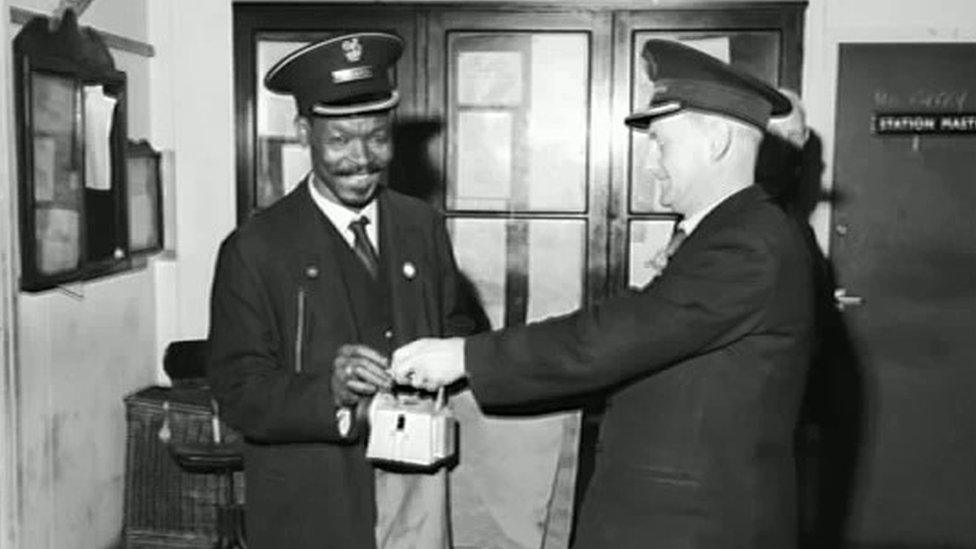Asquith Xavier: Pioneering black train guard 'omitted' from history lessons
- Published

Asquith Xavier faced death threats for campaigning for equal employment rights
The family of a black train guard who overturned a racist recruitment policy at Euston railway station in the 1960s has said he has been "omitted" from history lessons.
Asquith Xavier won the right to work at the station in 1966, but received hate mail and death threats.
Granddaughter Camealia Xavier-Chihota said he had "paved the way for us".
"His story is omitted from the National Curriculum," she said. "I don't think people in Chatham know about him."
"I think he's such a positive example, and one we really need at the moment," Ms Xavier-Chihota said ahead of the centenary of his birth on 18 July.
Mr Xavier, who lived in Chatham, Kent, worked as a guard at Marylebone Station and in 1966 applied for a promotion at Euston, where guards were paid an extra £10 a week.
At the time the station was operating a whites-only recruitment policy, a ban enforced by the local unions and station management, until Mr Xavier demanded change.

Mr Xavier refused to accept a white-only hiring policy at Euston station
His story made its way to parliament, and the then secretary of state for transport Barbara Castle.
As a result of his action, on 15 July 1966 British Railways announced colour bars at London stations had been scrapped.
When he began work he continued to face racist abuse and at times had a police guard.
"I feel an overwhelming sense of pride when I speak about him, but it's bittersweet because he paid the ultimate price really," said Mrs Xavier-Chihota.
"The years of stress and strain, the abuse he got from the public, it all had a detrimental effect on his health."
She said her grandfather was compared to Rosa Parks, the iconic figure of the US civil rights movement, but added "no one really knows about him".
Mr Xavier, who died in 1980, was part of the Windrush generation, moving to England from Dominica after World War Two.
"He believed that black people's lives mattered equally," Mrs Xavier-Chihota said.
"He wanted equal opportunities and a quality of life, and he is a positive example of how the pen is mightier than the sword."